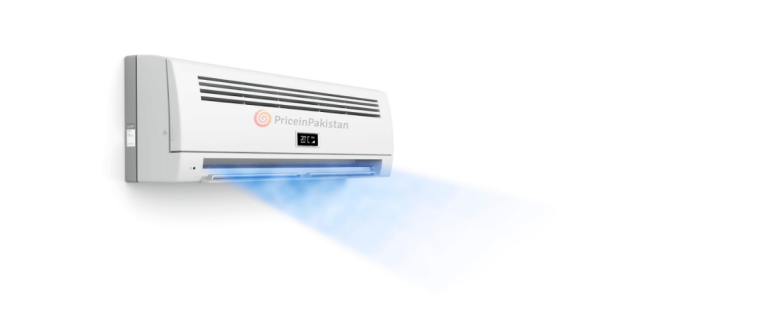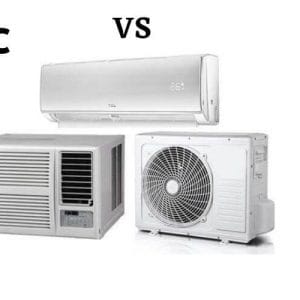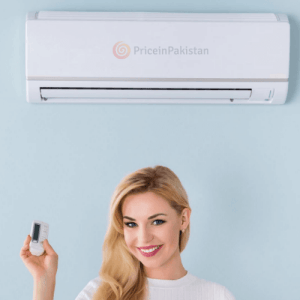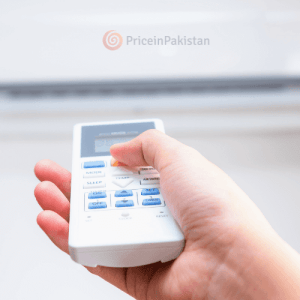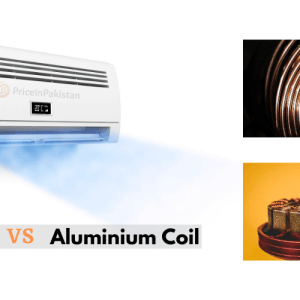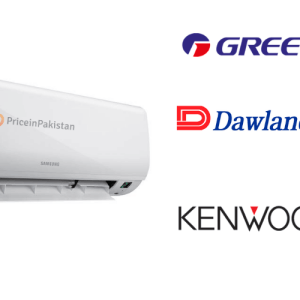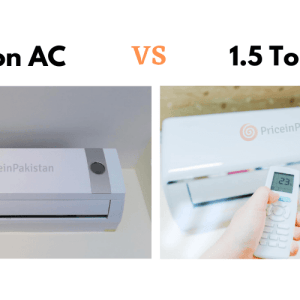This is one of the most frequently asked questions about air conditioners. Inverter Technology Save Electricity, One of the main reasons for this question is that people doubt the energy saving capabilities of inverter technology. The most common perception is: “you can’t save more than 7-10% by simply eliminating the on/off cycle. Those who claim to save 40% are just bluffing to create marketing hype.” I have done substantial research on this topic to provide you with a better idea about how inverter technology works and how it helps in saving electricity.
Inverter technology is mostly used in only three appliances; air conditioners, refrigerators, and washing machines. But, in this article, we will only be using air conditioners as a reference appliance.
Table of Contents
Energy Efficiency in the Air Conditioners
Manufacturers of air conditioners employ several ways to improve the efficiency of air conditioners. Following are the most of common of these ways:
- They put better coolants that give better thermodynamic efficiencies.
- They widen the heat-exchanger surface of the condenser that offers better heat dissipation.
- They install better quality compressors such as inverters.
A general perception is that the manufacturers install larger condensers which allow them to save more energy. This perception is quite wrong. If the manufacturers use larger condensers in the non-inverter air conditioner they would save as much percentage of energy. So, with this technology, non-inverter air conditioners can be improved as well. But what is it that allows inverter technology to save more energy than the non-inverter counterparts? To figure that out, let’s have a look at some data and numbers.
Comparing Inverter Air Conditioners with Non-Inverter Air Conditioners
To see the difference in a better way, I took two models of the same brand; one is inverter and the other is non-inverter. I choose the air conditioners of the same brand so that I get the similar technology in them. The two models have pretty much the same SEER numbers.
Let’s consider a scenario that you are in a room where the temperature is 40°C or 16000 BTUs. You desire to bring down the heat at say 20-21°C or 8000 BTUs. And, the heat coming inside the room from through walls and humans is about 4000 BTUs per hour.
So, after removing the 8000 BTUs from the room, the AC has to remove 4000 BTU per hour at a steady rate to retain the desired temperature of 8000 BTUs.
| Non-Inverter Air Conditioner | Inverter Air Conditioner |
|---|---|
| Cooling Capacity: 3350 Watts (11782 BTUs/hour) | Cooling Capacity: Maximum 5200 Watts ( 17100 BTU/hour) and Minimum 1750 (6000 BTUs/hour) |
| Power Consumption: 918 Watts | Power Consumption: Maximum 1750 Watts and Minimum 375 Watts |
| SEER or EER: 3.65 | SEER or EER: 2.9 – 4.6 |
| Running time to remove 10000 BTUs in the beginning: 51 mins | Running time to remove 10000 BTUs in the beginning: 51 mins |
| Power Consumption: 0.779 Units | Power Consumption: 0.810 Units |
| Running time of compressor to constantly remove 4000 BTUs in subsequent hours: 20 mins | Running time of compressor to constantly remove 4000 BTUs in subsequent hours: 39 mins |
| Power consumption after first hour: 0.311 units | Compressor will run at its minimum capacity so its power consumption will be: 0.243 Units |
| If the AC runs for 8 Hours, it will consume: 2.96 units | Total power consumption in 8 hours: 2.5115 units |
Now, in this case a non-inverter used up 2.96 units in 8 hours, whereas, the inverter AC consumed 2.5115 units in the same time which saves about 15% of energy.
If the inverter AC had a minimum cooling capacity of 1000 Watts, it would save up to 41% of energy.
What does this calculation tell?
- Inverter air conditioners in a bigger tonnage range are best as they cover your lowest cooling requirement as well.
- Undersized inverter air conditioners will not save you as much electricity. However, oversized inverter ACs with bigger tonnage can be very helpful in saving.
- Extended usage of inverter AC saves more electricity. Switching it on or off according to the need does not make any difference. So, for the best effect, adjust it a comfortable temperature and use it for a long time.
Why does inverter air conditioner give better efficiency in lower tonnage?
When the cooling capacity of the air conditioner is lower, less gas gets pumped. In this way, less heat is dissipated at the condenser. It keeps the condenser cooler so there is less pressure on the compressor. Therefore, the compressor consumes less power while giving better cooling effect.

Hamza Subhan is a digital content director at Price In Pakistan. He lives in Lahore. He keeps an eye on every new item in the markets of Pakistan and his hand on the pulse of Pakistani people to provide them with the information that they need about the product. He has a bachelor’s degree in Electrical engineering from UET Lahore. His keen passion for the latest technology, gadgets, and knowledge about electrical appliances led him to launch Price In Pakistan. He is the main hand behind the articles related to electrical home appliances and gadgets. When he is not looking out for the new technology and writing about it, he is playing guitar and singing for his friends.
